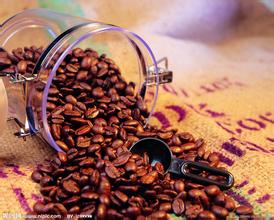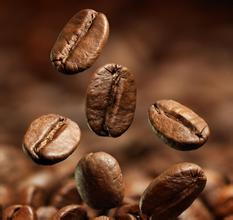Introduction to the characteristics, taste and handling of Guatemalan coffee
The coffee industry was developed by German colonization at the end of the 19th century. Today, most of the coffee industry's production takes place in the south of the country. Here, the slopes of the Sierra Madre volcano provide ideal conditions for growing high-quality coffee beans, and coffee growing at high altitudes is full of vitality. Compared with other kinds of coffee, tasters prefer this mixed flavor coffee with spicy flavor. The extra-hard coffee beans here are a rare good coffee with full grains, delicious taste and balanced acidity. In addition, Guatemala has attracted a lot of attention because of its giant coffee beans. The coffee industry, which once boomed the country, still dominates the national economy. Unfortunately, the domestic political situation is not good for coffee growers. High output is usually a sign of a country's overall economic prosperity.
Guatemala
Guatemalan coffee beans
However, coffee production in Guatemala has declined relatively, at 700kg per hectare, while that in El Salvador is 900kg per hectare and that in Costa Rica is even more astonishing, at 1700 kg per hectare. The export of dangerous Dimara coffee is controlled by private companies, but the National Coffee Council (Asociacion Nacional de Cafe) controls other sectors of the coffee industry. At present, some of the best quality coffee from Guatemala is exported to Japan, where each cup of coffee sells for $3 to $4. Most small-scale producers are descended from the Mayans (Mayan), who like to call cups local people.

Important Notice :
前街咖啡 FrontStreet Coffee has moved to new addredd:
FrontStreet Coffee Address: 315,Donghua East Road,GuangZhou
Tel:020 38364473
- Prev

Introduction of coffee beans from different countries
Colombia, second only to Brazil in coffee production, is the second largest coffee industry, producing everything from low-grade to high-end products, some of which are rare and mellow in the world. The most popular is Manning, which is rich in taste and has a pleasant sour taste. Supremo, which is also Colombia's first-class coffee, has a unique flavor.
- Next

A series of introductions to the flavor and types of coffee
Mellow [aromatic alcohol] is an adjective for coffee with low to medium acidity and good balance. Mild [mild] indicates that some kind of coffee has a harmonious and delicate flavor. Latin American premium coffee grown on the plateau is usually described as mild in texture. In addition, it is also a coffee term used to refer to all plateau coffee except those produced in Brazil. Soft [soft] shape
Related
- Does Rose Summer choose Blue, Green or Red? Detailed explanation of Rose Summer Coffee plots and Classification in Panamanian Jade Manor
- What is the difference between the origin, producing area, processing plant, cooperative and manor of coffee beans?
- How fine does the espresso powder fit? how to grind the espresso?
- Sca coffee roasting degree color card coffee roasting degree 8 roasting color values what do you mean?
- The practice of lattes: how to make lattes at home
- Introduction to Indonesian Fine Coffee beans-- Java Coffee producing area of Indonesian Arabica Coffee
- How much will the flavor of light and medium roasted rose summer be expressed? What baking level is rose summer suitable for?
- Introduction to the characteristics of washing, sun-drying or wet-planing coffee commonly used in Mantenin, Indonesia
- Price characteristics of Arabica Coffee Bean Starbucks introduction to Manning Coffee Bean Taste producing area Variety Manor
- What is the authentic Yega flavor? What are the flavor characteristics of the really excellent Yejasuffi coffee beans?

